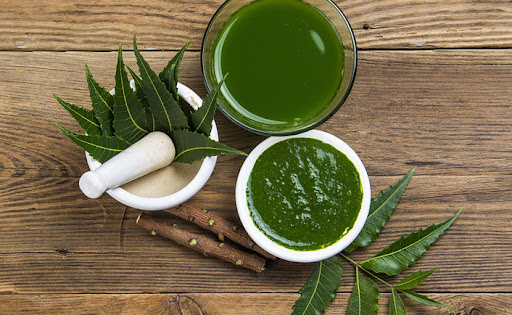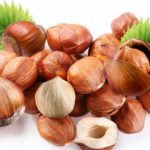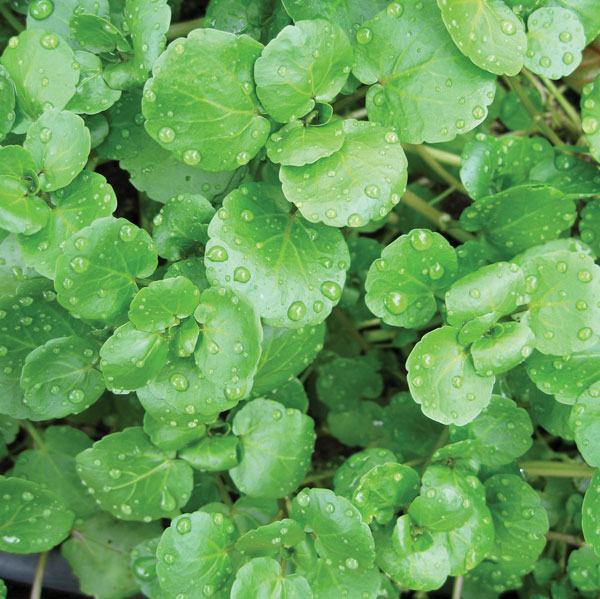Neem Leaves Benefits: A Powerful Gift from Nature
Neem leaves benefits are numerous and well-regarded in Ayurvedic and natural healing practices. The neem tree (Azadirachta indica), native to the seasonally dry tropical forests of northeastern India and other parts of Asia, has long been treasured in traditional and alternative medicine.
For centuries, various parts of this remarkable tree—especially the leaves—have been used to support health and well-being due to their potent medicinal properties.
These benefits range from supporting immune health and promoting clear skin to aiding in detoxification and oral hygiene.
The antimicrobial, antifungal, and anti-inflammatory properties of neem leaves make them especially valuable for both internal and external use.
Today, neem is conveniently available in various forms to suit different health needs and lifestyles, including:
- Capsules – for easy daily supplementation
- Powders – commonly used in teas, face masks, or as part of cleansing routines
- Oils – ideal for skin and hair care, as well as insect repellent
- Tinctures – liquid extracts often used for targeted health support
- Creams – applied topically for skin concerns like acne or eczema
- Mouthwashes – for promoting gum health and fresh breath
Whether used to purify the body, soothe the skin, or support overall wellness, the benefits of neem leaves continue to make this ancient plant a modern-day powerhouse in natural health care.
Health Benefits of Neem: Nature’s Healing Power
Neem (Azadirachta indica), a tree native to the tropical regions of South Asia, has been an essential part of traditional medicine for centuries. While neem leaves are the most commonly used part of the plant, some modern supplements are also formulated using extracts from the neem tree’s bark, blossoms, or fruit.
However, it’s important to note that in the United States, the Food and Drug Administration (FDA) does not regulate herbal supplements in the same way it regulates medications. This means the effectiveness and safety of neem supplements cannot be fully guaranteed.
For this reason, always read product labels carefully and consult a qualified healthcare provider before beginning any supplement regimen.
Neem Leaves Benefits
Let’s explore some of the key health benefits of neem.
- Boosts Immunity
One of the most celebrated health benefits of neem is its ability to strengthen the immune system. Neem is rich in powerful antioxidants and bioactive compounds that help the body ward off disease and infection.
Its natural antibacterial, antiviral, and antifungal properties make it effective in preventing and managing conditions like the common cold, sore throat, and various respiratory infections.
- Promotes Brain Health
Neem may also contribute to cognitive well-being. Some studies suggest that the antioxidants in neem offer neuroprotective effects, which may help safeguard brain cells from oxidative stress and inflammation.
Neem might also play a role in increasing levels of vitamin C (ascorbic acid) in the brain and assisting in lipid peroxidation, a process vital for healthy cell function.
There is even preliminary evidence indicating that neem may help reduce brain damage in individuals who have suffered a stroke. However, further scientific research is needed to confirm these potential benefits.
- Manages Diabetes
Among the many health benefits of neem, its anti-diabetic potential stands out. Neem leaves are known to support healthy blood sugar levels.
When consumed as a powder or juice, neem may aid in the regulation of glucose by protecting and regenerating pancreatic beta cells—the cells responsible for insulin production. This can be particularly helpful for people managing type 2 diabetes.
Neem’s healing potential is vast, but it’s essential to approach its use wisely and under professional guidance. Whether taken as a supplement or used in topical products, neem offers a natural path to improved health and well-being.
- Promotes Liver Health
One of the lesser-known but impactful neem leaves benefits is its potential to support liver function. The liver plays a vital role in filtering toxins from the blood, and neem may help protect this essential organ from chemical-induced damage.
Neem leaf contains antioxidants like carotenoids and vitamins E and C, which help stabilize liver enzymes, neutralize harmful free radicals, and reduce oxidative stress. This can promote natural detoxification and contribute to better overall health.
- Prevents and Treats Infections
Our bodies are constantly exposed to a variety of microorganisms—some beneficial, others potentially harmful. Neem, known for its strong antimicrobial properties, can be taken orally or applied topically to prevent microbial overgrowth and infections.
Regular consumption of neem in controlled amounts may help eliminate harmful bacteria from the digestive tract, promoting a healthy gut and a clean, disorder-free colon. This not only reduces the body’s burden in fighting infections but also enhances energy levels and immunity.
- Promotes Oral Health
For generations, neem has been a cornerstone in traditional dental care. One of the key neem leaves benefits is its ability to improve oral hygiene and fight dental problems.
Neem oil and powder possess germicidal properties that help eliminate the bacteria responsible for halitosis (bad breath), gum inflammation, and oral infections.
Brushing with neem twigs or using neem-based mouthwash can relieve gum pain, reduce swelling, and prevent bleeding—offering a natural alternative to chemical-laden dental products.
- Purifies the Blood
Neem’s natural detoxifying qualities make it an excellent blood purifier. It supports the elimination of toxins and enhances blood circulation, which in turn contributes to glowing skin, better organ function, and overall vitality.
A cleaner bloodstream reduces the risk of inflammatory conditions and skin issues, making neem a popular ingredient in detox teas and herbal supplements.
- Treats Wounds and Ulcers
Neem leaves are highly valued for their anti-inflammatory, antiseptic, and wound-healing abilities. The bioactive compounds in neem stimulate tissue regeneration and aid in faster wound recovery.
Neem juice or paste, when applied to cuts, burns, or ulcers—including peptic ulcers, canker sores, and ulcerative colitis—can reduce pain, inflammation, and the risk of infection. This makes neem an effective and natural remedy for both minor and chronic wounds.
Incorporating neem into your wellness routine—whether through capsules, powders, oils, or fresh leaves—can be a powerful way to support your body’s natural defenses and maintain internal balance.
However, always consult a healthcare professional before beginning any herbal regimen to ensure it’s safe and appropriate for your needs.
- Reduces the Risk of Cancer
Emerging studies suggest that neem may play a role in reducing the risk of certain cancers. Neem leaves and their extracts are rich in flavonoids and bioactive compounds that exhibit antioxidant, anti-inflammatory, and immune-modulating effects. These properties may help inhibit the development and progression of cancer cells.
Preclinical research indicates that neem could be effective against a broad range of human cancers, including skin, breast, lung, oral, stomach, liver, colon, and prostate cancers.
Its ability to interfere with cancer cell growth and promote apoptosis (programmed cell death) shows promising potential.
However, it is important to emphasize that more rigorous scientific research and clinical trials are needed to confirm these findings.
Cancer is a serious health condition, and any suspected signs should be addressed by a licensed medical professional for appropriate diagnosis and treatment.
- Protects and Heals the Skin
One of the most well-known health benefits of neem lies in its remarkable ability to treat and protect the skin. Neem leaves have been used in traditional medicine for centuries to address various skin concerns including:
- Acne and pimples: Neem oil contains compounds like nimbidin, margolone, and triterpenes, which help reduce inflammation and inhibit the growth of acne-causing bacteria.
- Wounds and ulcers: The antiseptic and regenerative properties of neem leaves support wound healing and tissue repair.
- Eczema, psoriasis, and fungal infections: Neem’s antifungal and antimicrobial actions help soothe itching, reduce redness, and prevent further irritation.
- Head lice treatment: Crushed neem leaves or neem-based oils are commonly used to eliminate lice naturally.
- Mosquito repellent: The external application of neem oil acts as a natural insect repellent due to its pungent aroma and antibacterial action.
Neem can be used in several forms to enhance skin health. Boiling neem leaves in water, straining, and storing the solution creates a multipurpose skin tonic that can be applied as an ointment or used in bathing for chronic skin issues.
From cellular protection to skin nourishment, the health benefits of neem offer a holistic approach to wellness. While neem is a powerful natural remedy, it’s essential to use it wisely and consult a healthcare provider before using it therapeutically—especially for serious health conditions.
How to Use Neem Safely and Effectively
Neem (Azadirachta indica) is a potent botanical known for its wide-ranging health benefits. However, when it comes to using neem, there is no standardized dosage. The appropriate amount and method of application can vary depending on the form—such as oils, powders, capsules, or extracts—and the intended use.
Topical Use of Neem
Neem is commonly used in skincare and haircare products for its antibacterial, anti-inflammatory, and antifungal properties. However, due to its strong potency:
- Always dilute neem oil with a carrier oil (like coconut, olive, or almond oil) before applying it to the skin.
- Perform a patch test by applying a small amount of the diluted mixture to a small area of skin. Wait 24 hours to check for irritation or allergic reactions.
- Follow product instructions strictly and never apply undiluted neem oil directly to large skin areas, as it may cause redness, itching, or burning.
Oral Use and Supplementation
Neem is also available in capsules, powders, and teas. These are marketed for benefits such as immune support, detoxification, and blood sugar control. However:
- Consult a healthcare provider before taking neem orally—especially if you’re pregnant, nursing, taking medications, or have pre-existing health conditions.
- Avoid long-term, unsupervised use, as the long-term effects of neem supplements are not fully understood.
- Choose high-quality, reputable products and read all labels for dosage and safety instructions.
Potential Risks and Side Effects of Neem
While neem is often praised as a natural remedy, it’s important to recognize that it may cause adverse effects, particularly when consumed in large quantities or over extended periods. Here are six potential risks or side effects associated with neem:
- Risk of Miscarriage
Neem extracts can act as a uterine stimulant and may induce miscarriage. Therefore, pregnant women should strictly avoid any form of neem, whether topical or oral.
- Skin Dryness
Long-term oral use of neem extracts may lead to excessive dryness of the skin, which can cause flaking, itching, and irritation.
- Kidney Stone Formation
Overconsumption of neem may increase the risk of kidney stone development, possibly due to the accumulation of certain compounds in the body.
- Possible Infertility
Neem may affect fertility in both men and women. Research suggests that it can:
- Reduce sperm count and motility in men.
- Interfere with ovulation in women. As a result, it is not recommended for individuals trying to conceive.
- Unsafe for Nursing Mothers
Neem compounds can be transferred to infants through breast milk, potentially causing harm. It may also give the milk a bitter taste, which could discourage feeding. Nursing mothers should avoid neem consumption.
- Vision Problems
Although neem has been traditionally believed to enhance eyesight, excessive intake may do more harm than good. Overuse of neem extracts may negatively impact eye health and deteriorate vision over time.
Final Thought
While the neem leaves benefits are impressive, it’s crucial to use this natural remedy with caution. Always follow dosage instructions, monitor for adverse reactions, and seek professional advice if you’re unsure about integrating neem into your wellness routine.
With mindful use, neem can be a valuable addition to your natural health toolkit.

A graduate of Computer Science and Information Management Technology. Diploma – Caregiving, Certificates – Dementia and Diabetes Awareness and Management. A researcher, blogger, songwriter, singer and acoustic guitarist. Born in an environment where natural talents such as healing are imparted at our natural birth. This natural talents of healing is the result of our genetic inheritance and the training from family environment.























